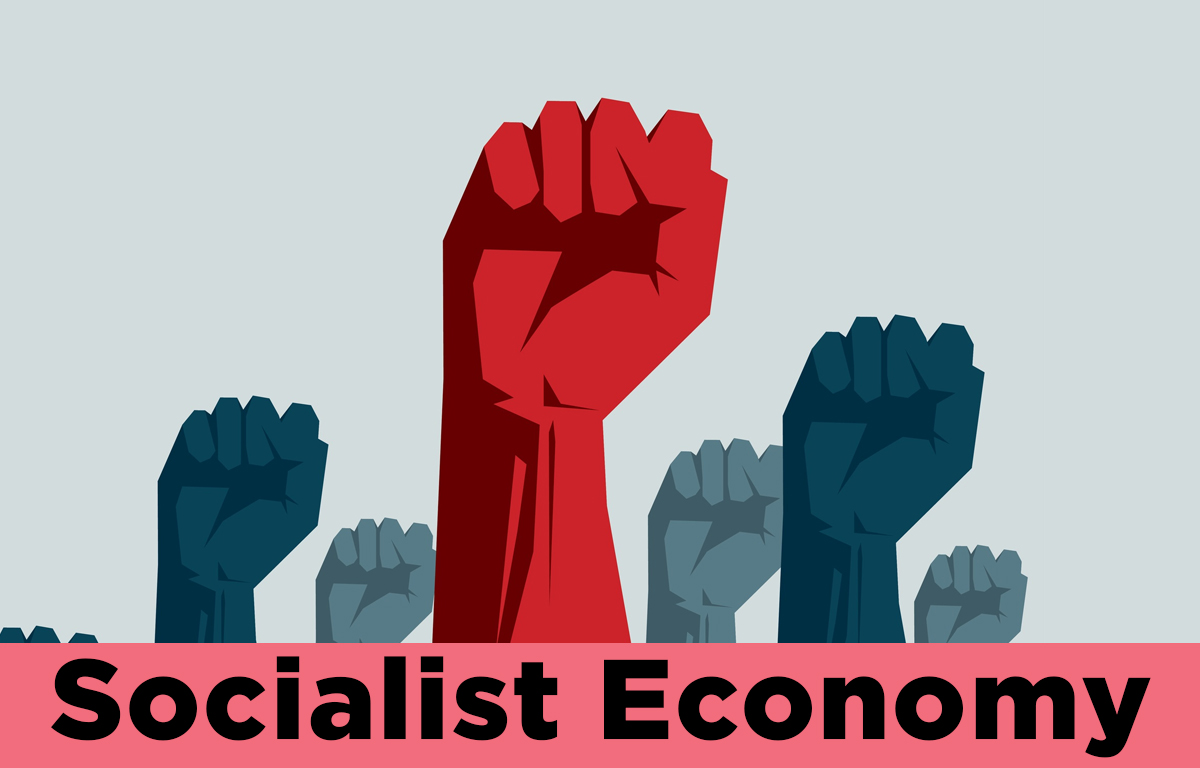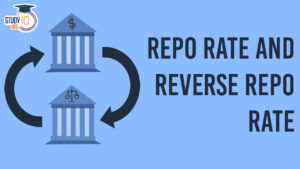Table of Contents
Socialist Economy
A Socialist Economy is an economic system in which the means of production, such as land, factories, and machinery, are owned and controlled by the state or the community as a whole, rather than by private individuals or corporations. In a socialist economy, resources are allocated according to the needs of society, and there is little or no emphasis on profit or competition. The goal of a socialist economy is to create an equal distribution of wealth and resources among all members of society.
Read about: India’s GDP Growth Rate
Socialist Economy Features
The features of a Socialist Economy include:
| S. No | Features of a Socialist Economy | Description |
| 1 | Collective Ownership | The means of production, such as land, factories, and machinery, are owned and controlled collectively by the state or community. |
| 2 | Central Planning | Economic decisions are made by a central planning authority rather than by the market forces of supply and demand. |
| 3 | Price Controls | Prices are often set by the government, rather than by the market, to ensure goods and services are affordable to all. |
| 4 | State Control | The government plays a central role in regulating and controlling economic activity. |
| 5 | Equal Distribution of Resources | The goal is to create an equal distribution of wealth and resources among all members of society. |
| 6 | Minimal Competition | Socialist economies place little or no emphasis on competition. |
Read about: Capitalist Economy
Socialist Economy Example Countries
Some examples of socialist economies are:
- The Chinese government has adopted a mixed economic system with elements of both socialism and capitalism. The state owns and controls key industries, such as energy, telecommunications, and transportation, while allowing private enterprise in other sectors.
- Cuba has a socialist economy in which the state owns and controls almost all means of production. The government provides free healthcare and education to all citizens, and there is a focus on meeting basic needs rather than creating profit.
- North Korea is a highly centralized socialist economy in which the government owns and controls all means of production. The country has a command economy with no private enterprise.
- Vietnam has a socialist-oriented market economy, which means that the state owns and controls key industries while allowing private enterprise in other sectors. The country has implemented economic reforms to encourage foreign investment and modernize its economy.
- Laos is a socialist country in which the government owns and controls most means of production. The country’s economy is heavily dependent on agriculture and natural resources.
- Venezuela has a mixed economy that combines elements of socialism and capitalism. The government owns and controls key industries such as oil while allowing private enterprise in other sectors. In recent years, the country has faced economic challenges, including high inflation and shortages of basic goods.
Socialist Economy Merits
Some of the strengths associated with a socialist economy include:
- Equality: Socialism aims to create a more equal distribution of wealth and resources, which can lead to a more equitable society.
- Social Welfare: Socialism places a greater emphasis on social welfare and provides universal access to healthcare, education, and other basic needs.
- Stability: The state controls key industries and resources, which can help to prevent economic instability and ensure that resources are allocated in a planned and coordinated manner.
- Greater Control: The government has greater control over the economy, which can allow for more efficient resource allocation and reduce the influence of powerful corporations and individuals.
- Shared Ownership: Collective ownership of the means of production can lead to greater collaboration and a sense of community.
Read about: GDP of Indian States
Socialist Economy Demerits
Some of the challenges associated with a socialist economy include:
- Inefficiency: Central planning can be inefficient and slow, as decisions are made by a central planning authority rather than by market forces of supply and demand.
- Lack of Innovation: The absence of competition can lead to a lack of innovation and motivation to improve products and services.
- Shortages: Price controls and state ownership can lead to shortages of goods and services, particularly if there are inefficiencies in the production and distribution process.
- Limited Individual Freedom: Collective ownership can limit individual freedom and autonomy, as economic decisions are made collectively rather than individually.
- Corruption: State control over the economy can create opportunities for corruption and abuse of power, particularly if there is limited transparency and accountability.
- Limited Economic Growth: Without the incentive of profit, economic growth can be limited, which can make it difficult for the economy to keep up with the demands of a growing population.
Read about: Macroeconomics and Microeconomics
Socialist Economy UPSC
The topic of a socialist economy is important for UPSC as it is a part of the economics UPSC Syllabus for the civil services examination. Understanding the features, strengths, and challenges of socialist economies is important for aspirants preparing for the UPSC exam. This topic is also covered in UPSC Online Coaching programs offered by StudyIQ and is likely to be included in UPSC Mock Test to help aspirants prepare for the exam.
Read about: Unemployment Rate in India


 Repo Rate and Reverse Repo Rate, Impact ...
Repo Rate and Reverse Repo Rate, Impact ...
 Foreign Contribution Regulation Act (FCR...
Foreign Contribution Regulation Act (FCR...
 Urban Cooperative Banks in India, Functi...
Urban Cooperative Banks in India, Functi...





















